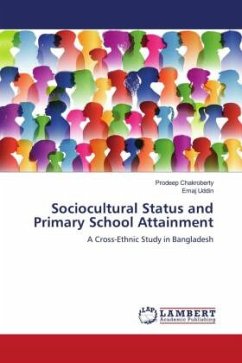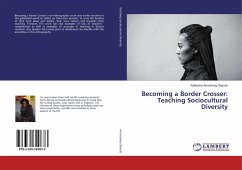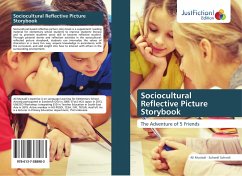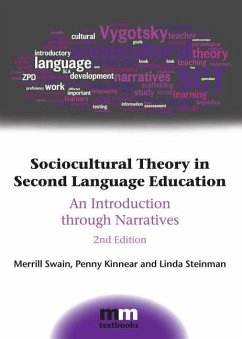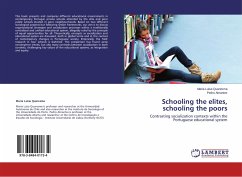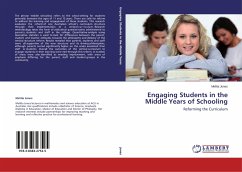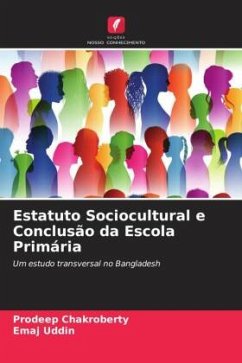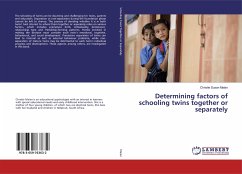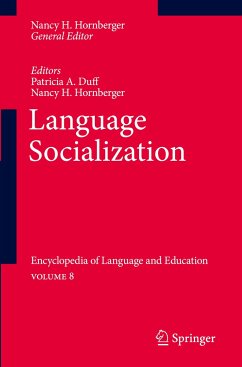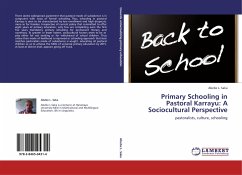
Primary Schooling in Pastoral Karrayu: A Sociocultural Perspective
pastoralists, culture, schooling
Versandkostenfrei!
Versandfertig in 6-10 Tagen
32,99 €
inkl. MwSt.

PAYBACK Punkte
16 °P sammeln!
There seems widespread agreement that pastoral mode of subsistence is in congruent with ways of formal schooling. Thus, schooling in pastoral Karrayu is seen to be characterized by low enrollment and high dropouts, more so for females. Irrespective of current policy that committed to offer eight years of primary education; only few are completing even the first five years mandatory primary schooling for permanent literacy and numeracy. To greater or lesser extent, sociocultural factors seem to be at play either for not sending or for withdrawal of school children. Thus unless their mode of liv...
There seems widespread agreement that pastoral mode of subsistence is in congruent with ways of formal schooling. Thus, schooling in pastoral Karrayu is seen to be characterized by low enrollment and high dropouts, more so for females. Irrespective of current policy that committed to offer eight years of primary education; only few are completing even the first five years mandatory primary schooling for permanent literacy and numeracy. To greater or lesser extent, sociocultural factors seem to be at play either for not sending or for withdrawal of school children. Thus unless their mode of livelihood is improved or schooling approach that best matches pastoralists mode of subsistence is sought, educating all pastoral children so as to achieve the MDG of universal primary education by 2015, at least at district level, appears going off track.



